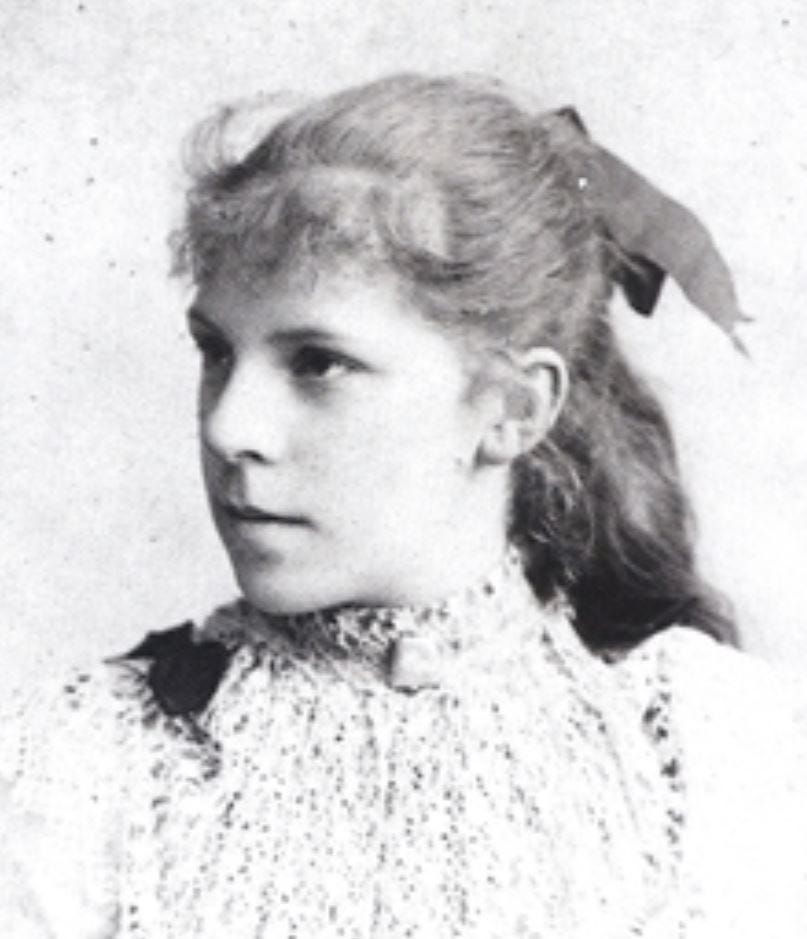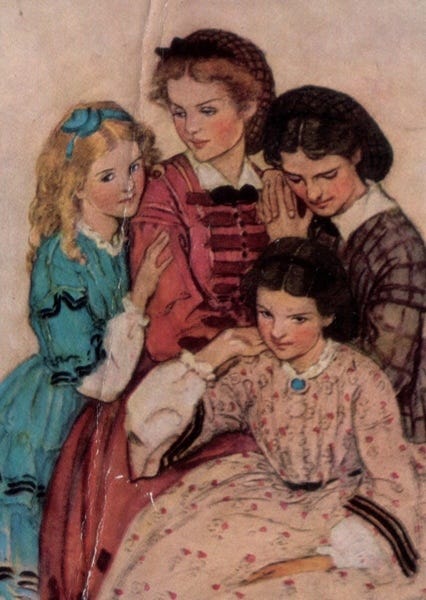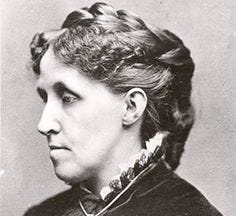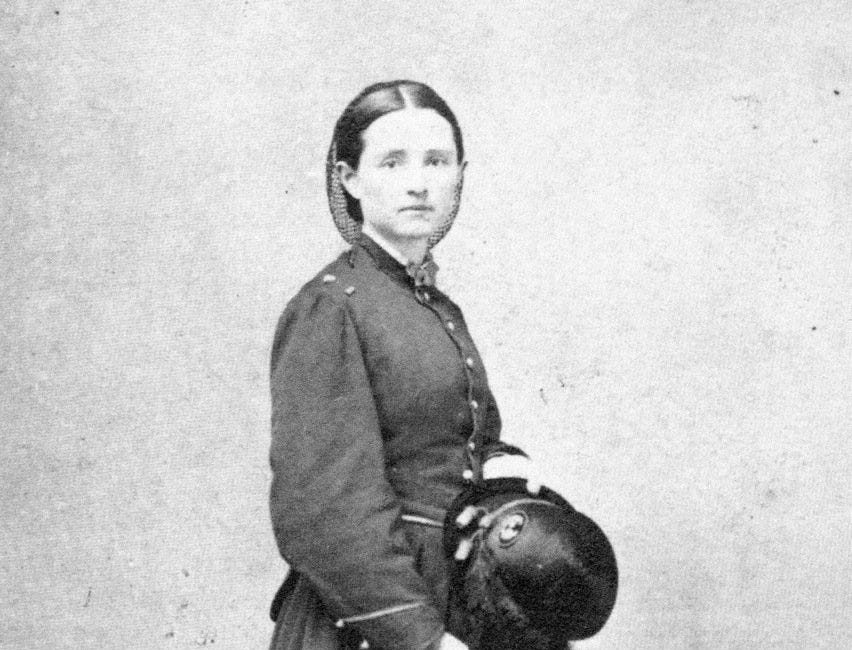Conclusion: The End of the Alcott Story
Though books live forever, authors do not. They pour their souls into stories for us to enjoy after they are gone. In Louisa May Alcott’s case, we have a great collection of stories to read.
In the year of 1868, a red book titled Little Women made its appearance in bookstores. Though marketed as a story for little girls, it was enjoyed by people of all ages. Many were women who had lost husbands, sons, and brothers to the Civil War. The March family’s story healed a nation with its warm messages.
Though books live forever, authors do not. Authors pour their souls into stories for us to enjoy after their deaths.
Louisa May Alcott left us a great collection to read, ranging from short stories to thrillers. If we wish to find her again, we need only do a Google search. Her other novels include An Old Fashioned Girl, Work, and Hospital Sketches.
If you are like me and enjoy biographies, you can learn more about her by finding a book about her or her family. Much has been written about the Alcotts; at present, I am working through a book called Marmee and Louisa by Eve LaPlante.
Orchard House, the place where Louisa wrote Little Women, is another place where we can find her. Today, it is a museum where visitors can see, among other things, the piano that was given to Lizzie Alcott.
The Alcotts never had a conventional life. Their father, Bronson, continued to obsess over Transcendentalism, leaving on his daughter Louisa the burden of supporting the family.
This strain contributed to Louisa feeling tired and worn-out when she was only in her thirties. Mentally, she also struggled; as the years crept by, she complained of wishing for a break.
Tragedy would soon give Louisa another responsibility.
In 1879, Louisa’s youngest sister, May, died from birth complications. She had been living in France with her husband, Ernest Nierieker. May had suspected that something would go awry, due to her advanced age. She made an agreement with her husband that the child was to go with Louisa if tragedy should strike. Ernest, who was significantly younger than May, did not argue with her stipulations. Perhaps he did not relish the thought of being anchored with a baby to look after alone.
Tragedy did strike. After the birth, May lived for seven weeks—long enough to name her daughter Louisa, after her sister. The baby, called “Lulu” for short, was soon placed on a ship with her father’s sister, Sophie, bound for America. Weeks later, Louisa and Anna waited at the docks, anxious to meet the only thing that remained of their beloved sister.
The arrival of Lulu allowed Louisa to experience the joys of motherhood. She dedicated her final years to that child, ensuring that Lulu was looked after and happy. She and Anna created a comfortable environment for Lulu to grow up in.
The widower Bronson Alcott’s health continued to deteriorate. He’d suffered a stroke after his wife’s death which left him partially paralyzed. As he went through his wife’s journal entries, the man’s eyes were opened to the ways in which he had failed his family as a breadwinner.
In his final years, Bronson lamented, often in tears, that he spent more time on speaking tours than providing for his daughters. Perhaps it also hurt his heart to see Louisa aging prematurely.
Dutiful daughter, Louisa forgave her father. She continued to do what she had always done: take care of him. Though she was tired and often irate, her generosity was endless. As a birthday gift, she had all of his works bound as hardcover books that he could see on his shelf.
Bronson also found joy caring for Lulu. He delighted in her as a grandfather should. Perhaps, in this way, he sought redemption for his shortcomings as a father.
When Louisa became too frail to care for Bronson, she hired a trustworthy caregiver to keep an eye on him. She then left Orchard House for a nursing home, ready to be looked after by someone else.
Louisa spent most of her days at the nursing home alone, visiting Orchard House when she felt stronger. During one of these visits, a friend was present to recount what would be Louisa’s final exchange with her father:
Kneeling by his bedside, she took his hand, kissed it, and placed in it pansies she had brought, saying “It is “Weedy” (her pet name). Then after a moment of silence she asked: “What are you thinking of, dear?” He replied, looking upward, “Up there; you come too!” Then with a kiss she said, “I wish I could go,” bowing her head as if in prayer. After a little came the “Good-by,” the last kiss, and like a shadow she glided from the room.
—Louisa May Alcott: The Woman Behind Little Women, Harriet Riesen
You come too.
Did Bronson know how prophetic his words would be? Could he have had a sense that he and his wildest daughter would leave this world nearly at the same time?
Though Louisa’s relationship with Bronson was complicated, she proved her love for him by doing what he was unable to do for her. She ensured that he always had food to eat, and she forgave him when, at the end of his life, he felt remorse.
The Alcott family had many flaws, but they loved one another. Though conflicts caused tension amongst them, they were loyal to one another till the end.
The end.
As if to cement the love that was shared between Bronson and Louisa, their lives ended on nearly the same day.
In the nursing home, Louisa continued to feel weak. She spent several days getting her affairs in order. She sensed that her sojourn through this world would soon be over. As she finished with this process, she received visits from friends and relatives, essentially to say good-bye.
Amos Bronson Alcott died in his home on March 4, 1888. After Louisa learned of her father’s passing, the grief must have broken her. She herself died on March 6, 1888, after a massive stroke.
Father and daughter left this world nearly hand-in-hand.
In a touching post-mortem exchange, Bronson and Louisa paid respects to one another at each others’ funerals. Louisa had written a poem to her father called “The Last of the Philosophers,” which was read at his service. He had written a poem about her called “Duty’s Faithful Child,” and it was read at hers.
Father and daughter were laid to rest at Sleepy Hollow Cemetery, where all of the Alcotts except for May are buried. May, who died in Paris, never intended to leave Europe. Louisa had a stone placed at Sleepy Hollow bearing her younger sister’s name, but May’s remains are in France.
Shortly after Louisa’s death, Ernest Nieriker returned to Concord for his daughter, Lulu. Ignoring Anna Alcott’s pleas to let the child stay, he whisked Lulu (and her inheritance) to Switzerland, where she grew up away from the place she had known as home from infancy.
Ernest had attempted to accumulate wealth on his own but failed. His daughter, and the money Louisa left for her, became his last resort. Nieriker protested heatedly when, at the age of twenty-five, Lulu married a wine merchant named Emil Franz Rasim, knowing that the money would go with her.
After her marriage, Lulu returned to Concord. She wished to build her life in the place where she had been loved for her own sake, the place where she had known happiness with Aunt Louie and everyone else.
Anna, the last of the Alcott sisters, died in 1893 at the age of sixty-two. Though her own life had been quiet in comparison with Louisa’s and May’s, the fact that she inspired Meg March was enough for her death to be mentioned in newspapers.
Anna loved the character of Meg. She would sometimes sign letters using the name that Louisa gave her in the novel. As a young lady, she’d been a talented actress; perhaps she cherished Meg March as a way in which to continue her ‘role,’ after she became a mother and had children to take care of.
Though the people who inspired Little Women and its characters have died, the novel will live forever. It is a warm blanket for the soul in need of comfort. It is a tale of love, family, and sisterhood. It’s given readers hope for generations.
It has been an honor for me to become acquainted with the Alcott family throughout the month of November. Like all humans, they had flaws; they suffered tragedy, made mistakes, and quarreled. They are, however, a national treasure.
It is a dream of mine to one day visit Orchard House and retrace Louisa’s steps.
For the month of December, Charles Dickens will be visiting the Tearoom. I’ve always been a big fan, so you can imagine that I am excited! The book club will be reading A Christmas Carol first; if you are a fast reader like I am, we will go on to read The Nutcracker and the Mouse King.
To join us, click here and become a part of the group!
December is a busy month for many people, so it’s alright if you’re unable to participate in the read-alongs. As for me, I will be digging into the life of Charles Dickens, whose house I visited (I’ll talk more about that in another post; it’s one of my favorite memories!)
I hope you had a very happy Thanksgiving. Thank you for sticking with me through this wonderful adventure that is literature!
Dr. Mary Edwards Walker: The Woman in Bloomers
At the time I am writing this post, Google says that 3,519 American soldiers have had their acts of valor acknowledged with the U.S. Medal of Honor. Signed into law by President Abraham Lincoln in 1862, the Medal is awarded to troops who have placed their lives in great danger for the sake of their country.










Thank you for sharing so much about Louisa May Alcott's life this November. I have so enjoyed learning more about her! 😊
I look forward to learning more about Charles Dickens this month, I have started A Christmas Carol and I am really enjoying it so far! ✨️
A poignant conclusion to the Alcott story. Thank you.